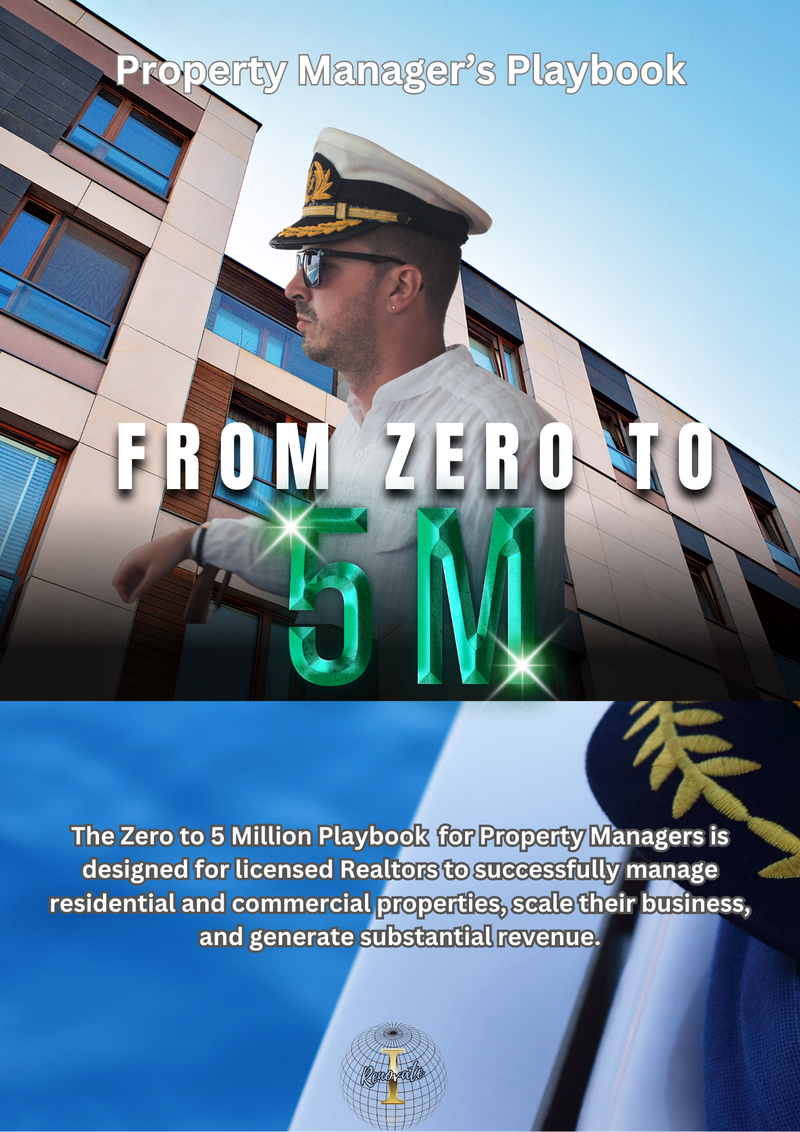Property Managers Playbook

Objective: Teach licensed Realtors how to successfully manage residential and commercial real estate properties, scale their business, and generate substantial revenue.
Module 1: Introduction to Property Management
- Overview of Property Management
- Definition and scope
- Types of properties (residential vs. commercial)
- The property management industry landscape
- Why Property Management is Profitable for Realtors
- Long-term passive income opportunities
- High-value relationships and networks
- Leveraging your real estate license
Module 2: Understanding the Key Responsibilities of a Property Manager
- Daily Operations
- Rent collection, maintenance requests, and tenant relations
- Handling property inspections and documentation
- Lease agreements and renewals
- Managing Commercial vs. Residential Properties
- Differences in tenant needs
- Commercial lease structures (e.g., NNN, gross leases)
- Regulatory and zoning issues in commercial properties
Module 3: Attracting High-Value Clients
- Building Your Property Management Portfolio
- How to approach property owners
- Developing your value proposition
- Creating effective property listings and marketing materials
- Finding Clients in Both Residential & Commercial Sectors
- Networking strategies for Realtors
- Using online platforms and social media
- Leveraging your real estate network for referrals
Module 4: Setting Fees and Monetizing Your Services
- Fee Structures for Property Management
- Flat fees vs. percentage-based models
- Leasing commissions and renewal fees
- Additional revenue streams (e.g., maintenance fees, administrative fees)
- Setting Your Rates and Negotiating Contracts
- How to determine competitive pricing
- Negotiating contracts with property owners
- Upselling additional services
Module 5: Systems and Tools for Efficient Property Management
- Property Management Software
- Overview of top tools (e.g., Buildium, AppFolio)
- Automating lease management, tenant communication, and payments
- Building a Team for Scale
- Hiring or outsourcing key roles (e.g., maintenance, marketing)
- Managing contractors and vendors
- Streamlining administrative processes
Module 6: Marketing and Growing Your Property Management Business
- Branding Yourself as a Property Manager
- Developing a unique selling proposition (USP)
- Creating an effective website and social media presence
- Advertising to attract both owners and tenants
- Scaling Your Property Management Business
- Identifying opportunities for growth (e.g., new properties, areas)
- Building strategic partnerships with developers and real estate agents
- Expanding into commercial real estate management
Module 7: Financial Management and Maximizing Profit
- Budgeting for Property Management
- Managing cash flow and expenses
- Setting aside funds for maintenance and emergencies
- Increasing Property Value and Rent Income
- Value-add strategies for both residential and commercial properties
- How to increase tenant retention and reduce vacancies
- Leveraging tax benefits and incentives
Module 8: Legal Considerations and Risk Management
- Property Management Laws and Regulations
- Fair Housing Act, landlord-tenant laws, and other legal requirements
- Handling disputes and evictions legally
- Risk Management for Property Managers
- Insurance and liability coverage
- Protecting your assets and your clients’ properties